JONES LAW GROUPYour Lawyers for Life! Personal Injury Law Firm in St. Petersburg
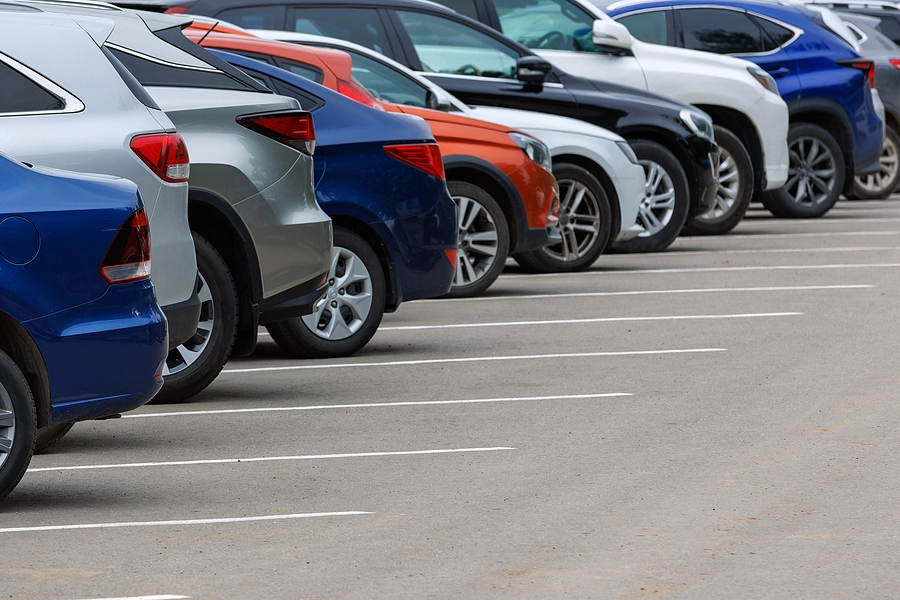
Certain types of cars are more likely to be involved in causing car accidents based on factors like size and safety features. Summary Understanding the vehicles most likely to cause auto accidents can save lives. Whether you’re a driver, personal injury victim, car enthusiast, or simply someone who values safety, knowing which types of vehicles […]
Call our personal injury law office directly at (727) 512-9847
At Jones Law Group in St. Petersburg, FL, we would like to hear from you. Contact us for a free personal injury case consultation.
Call our personal injury law office at (727) 512-9847
Get educated on the Florida's personal injury laws and more.
Certain types of cars are more likely to be involved in causing car accidents based on factors like size and safety features.
Summary
Understanding the vehicles most likely to cause auto accidents can save lives. Whether you’re a driver, personal injury victim, car enthusiast, or simply someone who values safety, knowing which types of vehicles are more prone to accidents is vital.
Our team is here to review the different car types, providing you with facts, statistics, and insights that could make all the difference on the road. As Florida car accident lawyers, our team at Jones Law Group is familiar with the riskiest types of cars that cause the most accidents.
We also know how difficult the aftermath of one of these collisions can be. If you have been involved in a car accident, we encourage you to call us at (727) 571-1333 or submit this contact form to book a free case evaluation. We’ll discuss your legal options and provide advice suited to your specific situation.
A car accident occurs when a vehicle collides with another vehicle, pedestrian, animal, road debris, or other stationary obstruction such as a tree, pole, or building. There are several factors that contribute to these incidents, including environmental conditions, driver behavior, and the type of vehicle involved.
Driver behavior is often cited as the leading cause of auto accidents in the U.S. Distracted driving, driving under the influence, and speeding are some of the most common behaviors that lead to collisions. Environmental conditions like poor road maintenance, bad weather, and inadequate lighting also play a crucial role.
Additionally, apart from environmental conditions and driver behavior, the vehicle itself—its type, make, model, and even its safety features— can influence accident rates.
According to the National Highway Traffic Safety Administration (NHTSA), there were approximately 6.7 million police-reported crashes in 2018 alone. Of these accidents, roughly 36,560 were fatal.
These staggering numbers highlight the importance of understanding various aspects of car accidents, including the types of vehicles commonly involved in causing collisions.
Although we may not be able to eliminate all car accidents, reducing risk is possible. Understanding which types of cars cause the most auto accidents is crucial for making informed and safer driving choices.
By identifying the vehicles that are more prone to accidents, drivers can take necessary precautions and be more vigilant on the roads. Factors such as design, size, and safety features often play significant roles in determining a car’s likelihood of being involved in an accident.
Sedans are among the most common vehicles on the road, and they are frequently involved in auto accidents. These vehicles are popular for their affordability, fuel efficiency, and practicality. However, these same characteristics can contribute to their higher accident rates.
With so many sedans on the road, it’s statistically inevitable that they’ll feature prominently in accident statistics. Additionally, most “affordable” sedans often lack the advanced safety features found in newer or more expensive sedan cars.
While many modern sedans come equipped with airbags and antilock brakes, they may not have lane-keeping assist or automatic emergency braking systems that can prevent auto accidents.
Statistics from the Insurance Institute for Highway Safety (IIHS) reveal that sedans account for a significant percentage of vehicle accidents. Despite their size and maneuverability, sedans often fare poorly in collisions with larger vehicles like trucks and SUVs, contributing to higher injury rates among sedan drivers and passengers.
Sport Utility Vehicles (SUVs) and crossovers have seen a surge in popularity in recent years. These vehicles offer a higher driving position, more interior space, and the capability to handle various terrains. However, they also come with a set of unique risks that can lead to severe accidents.
One of the primary concerns with SUVs is their higher center of gravity, which makes them more prone to rollovers. Rollover crashes are among the most dangerous types of accidents, often resulting in serious injuries or fatalities.
According to a group of researchers from the Philadelphia medical community, SUVs have a higher rollover rate compared to other vehicles, making them particularly hazardous in certain driving conditions.
Despite their size and weight, SUVs can also be involved in severe frontal and side-impact collisions. Their sheer mass means they can cause significant damage to smaller cars on impact. Statistics show that while SUVs may offer better protection to their occupants, they pose a greater risk to other road users.
Commercial trucks and vans play a critical role in the economy, but they also contribute to a significant number of truck accidents. These vehicles are designed to transport goods rather than people, and their size and weight can make them particularly hazardous on the road.
Trucks, especially large ones like semi-trailers, have extensive blind spots that can make it challenging for drivers to see other vehicles. This lack of visibility increases the risk of collisions, particularly in congested areas.
Additionally, the weight of these vehicles means they require a longer stopping distance, which can lead to rear-end collisions if the driver is not vigilant. Vans, although smaller than trucks, also present risks. They are often used for transporting passengers or goods, and their design can make them less stable than other vehicles.
Statistics indicate that commercial vehicles, including trucks and vans, are involved in a significant number of traffic accidents each year. The NHTSA reports that in 2018, large trucks were involved in 9% of all fatal crashes.
Motorcycles offer a sense of freedom and excitement that cars can’t match. However, this comes with increased risk. Due to the lack of a protective enclosure, motorcyclists are far more vulnerable in accidents than car occupants.
Motorcycle accident statistics show motorcyclists are 28 times more likely to die in a crash than occupants of passenger cars. The reasons for this are manifold. Motorcycles are harder to see than cars, making them more susceptible to being hit by other vehicles.
Additionally, motorcyclists have less stability and protection, increasing the likelihood of severe injuries or fatalities in the event of an accident. Despite advancements in protective gear and safety technology, the inherent risks of riding a motorcycle mean that motorcycle accidents are often more severe than those involving cars.
Several factors influence the likelihood of accidents caused by different types of cars and vehicles. One crucial factor is the vehicle’s safety rating. Drivers should avoid the most dangerous car models when choosing a vehicle.
Cars with higher safety ratings are generally better equipped to protect their occupants in the event of an accident. These ratings are determined based on crash tests and other safety evaluations conducted by organizations like the IIHS and the NHTSA.
Another significant factor is the size and weight of the vehicle. Larger, heavier vehicles like SUVs and trucks tend to cause more damage in collisions, both to themselves and to other vehicles and road users. This can lead to more severe injuries and higher fatality rates.
On the other hand, smaller, lighter vehicles like sedans and motorcycles offer less protection to their occupants, making them more vulnerable in crashes. The role of new technology in modern vehicles cannot be overlooked.
Features like automatic emergency braking, lane departure warnings, and blind-spot monitoring can significantly reduce the likelihood of accidents. These technologies are becoming increasingly common in newer vehicles, offering additional layers of protection to drivers and passengers alike.
Safety should always be a priority, regardless of the type of vehicle you drive. Here are some tailored safety tips for each vehicle category:
Although avoiding the types of cars that cause the most accidents can help lower your risk of injury, your behavior as a driver is much more important.
Knowing the right steps to take after a car accident in Florida is crucial for ensuring your safety, protecting your legal rights, and managing the situation effectively. Immediate actions can make a significant difference in handling the aftermath and securing the necessary support.
Engaging seasoned personal injury lawyers, like those at Jones Law Group, can be invaluable in the aftermath of an accident.
The first and foremost step after an auto accident is to ensure everyone’s safety. Report the accident to law enforcement authorities and/or call emergency services to report the accident and get medical assistance for anyone who is injured.
Gather as much information as possible from the accident scene. Take photographs, note down the details of the involved parties, and collect witness statements if available. This documentation can be crucial for insurance claims and legal proceedings.
Inform your insurance company about the accident as soon as possible. Provide them with all the necessary details and cooperate with their investigation. Timely notification can help expedite the claims process.
Reach out to seasoned personal injury lawyers at Jones Law Group to discuss your case. The expertise of our personal injury attorneys can guide you through the legal complexities of filing a car accident claim, help you understand your rights, and ensure you receive the compensation you deserve.
Be sure to follow up on any medical treatment required after the accident. Keep all medical records and receipts as they are essential for both health recovery and legal purposes.
After experiencing a car crash in Florida, it’s crucial to understand your legal rights and options. Dealing with the aftermath of an accident can be overwhelming, often due to insurance claims, potential lawsuits, and the stress of recovery.
Engaging a knowledgeable car accident lawyer can make a significant difference in achieving a favorable outcome. The benefits of working with our car accident lawyers include:
Choosing Jones Law Group ensures you have a dedicated team working relentlessly to protect your rights and secure the best possible outcome after a car accident.
Knowing which types of cars cause the most accidents can only do so much to help you avoid a collision. If you’ve been involved in an auto accident caused by another driver, hiring a seasoned personal injury lawyer is crucial.
At Jones Law Group, we understand the complexities of car accidents. That makes our team the right choice to help you secure the compensation you deserve.
Call us at (727) 571-1333 or submit this contact form to book a free case evaluation. Our experienced team of auto accident attorneys is ready to assist you through every step of the legal process.
The size and weight of a truck can significantly contribute to accidents due to their impact on maneuverability and stopping distance. Trucks require more time and space to stop compared to smaller vehicles.
This increases the likelihood of collisions, especially in sudden braking scenarios. Their large size also creates blind spots that make it difficult for truck drivers to see smaller vehicles, potentially leading to side-swipe or rear-end truck accidents.
Certain car types are more prone to accidents due to their design and intended use. For instance, sports cars are known for high speeds and agile handling.
This often encourages aggressive driving behavior, which can increase car accident risk. Similarly, smaller cars may be less visible on the road compared to larger vehicles. Consequently, this makes them more susceptible to being involved in accidents.
Yes, the type of car can influence the severity of injuries in a crash. Vehicles equipped with advanced safety features such as airbags, crumple zones, and anti-lock braking systems can significantly reduce injury severity.
On the other hand, vehicles lacking these features may not provide adequate protection, resulting in more severe injuries.
The safest cars to drive are those that consistently receive high safety ratings from recognized organizations. These vehicles often feature comprehensive safety systems, including collision avoidance, lane-keeping assist, and robust structural integrity.
Models from manufacturers like Volvo, Mercedes, Subaru, and Toyota are frequently highlighted for their commitment to safety and reliability.
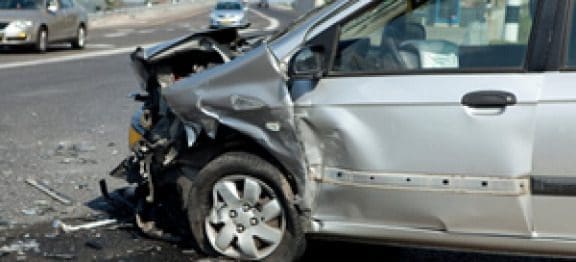
By: Heath C. Murphy + – Personal Injury The National Highway Traffic Safety Administration[1] released a study which attempted to quantify the causes car accidents. In 94% of the 2,000,000 accidents which were studied, the primary cause of the accident lay with the driver.[2] However, the next most common primary cause of the accidents was […]
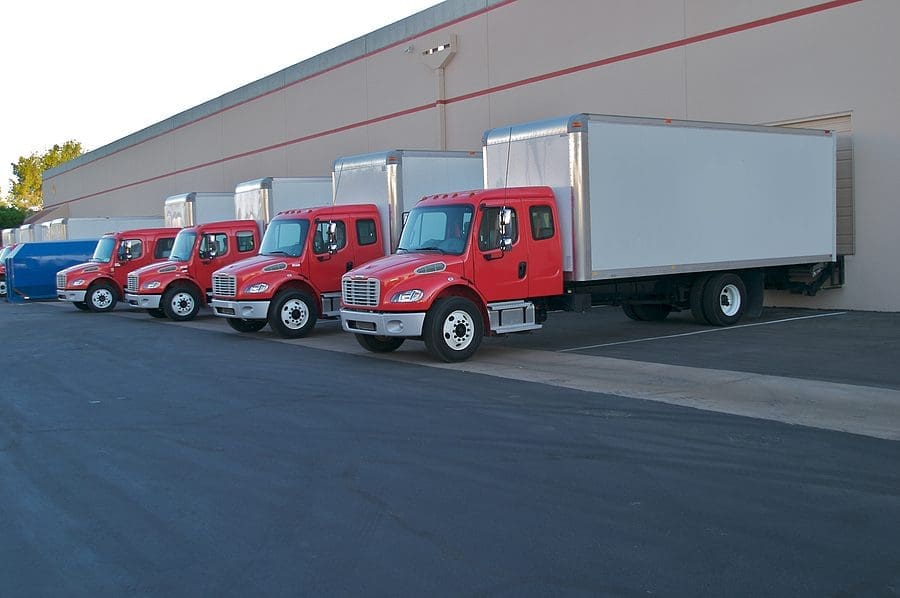
The world has changed greatly because of COVID-19. With the United States in lockdown for months on end and mask mandates required almost everywhere, many people are staying in their homes even past the end of lockdown to prevent themselves (and protect others) from getting COVID-19. 169 million people in the United States have received […]
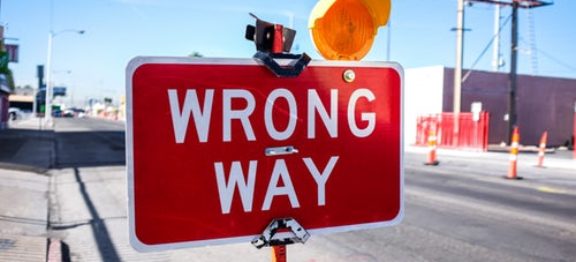
Crashes caused by wrong way drivers are not uncommon in the Tampa Bay area. Pinellas, Hillsborough, and Pasco counties are among the top counties in Florida for wrong way driver crashes. The Florida Department of Safety and Motor Vehicles found in that in 2015, Florida had 1,490 wrong-way crashes and 96 fatalities. The report stated […]

Summary If you were recently involved in a personal injury accident, you might be wondering if you’re wholly or partially responsible. The aftermath of a car wreck, slip and fall, or any other accident can be confusing. You might not be sure if you played a role in causing the accident. This question is crucial […]
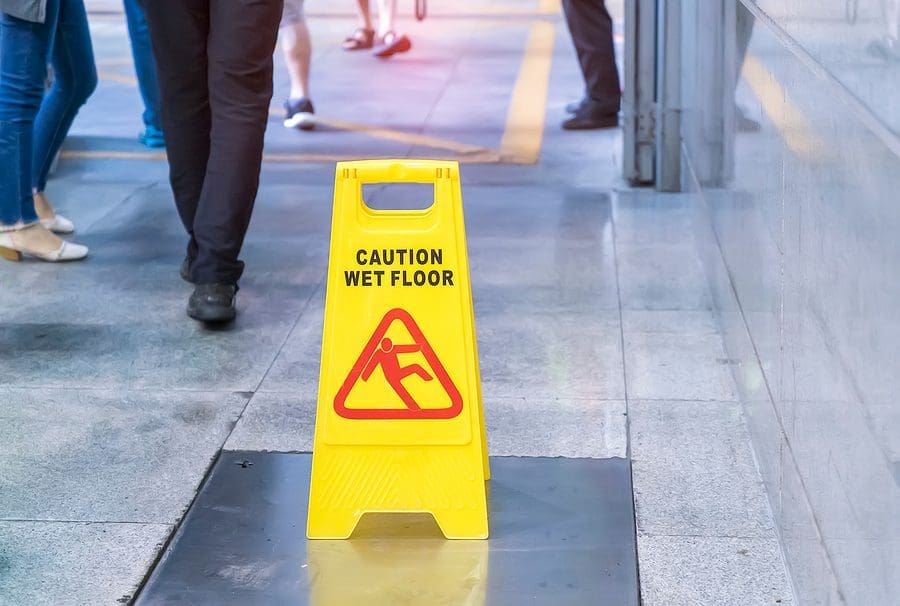
Slips, trips, and falls happen to everyone at one point or another. Thankfully, these accidents are often more shocking than they are harmful. However, there are many circumstances where slips, trips, and falls do cause severe injuries. Falls lead to over 8 million emergency room visits per year and one in five falls leads to […]
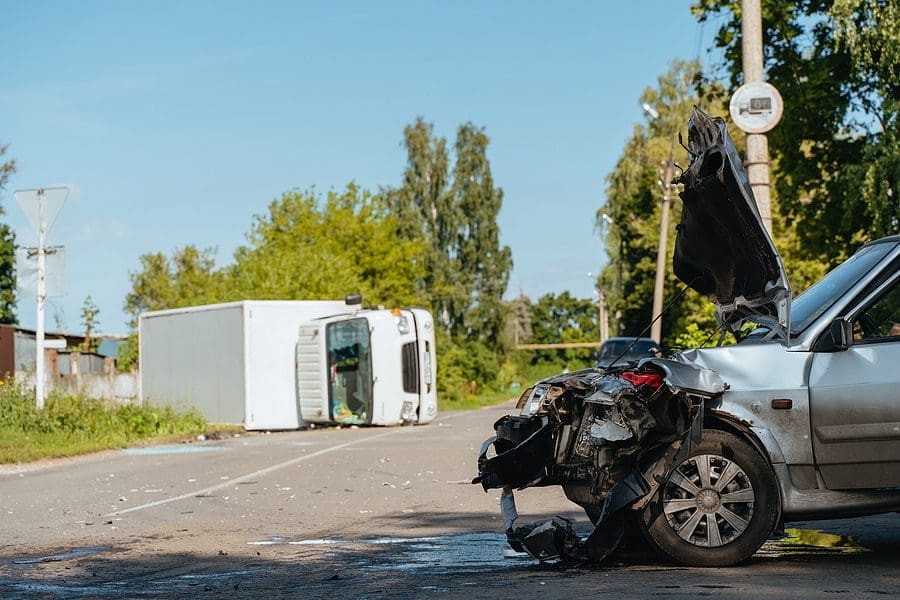
Summary: Catastrophic injury accidents have a profound and lasting impact on individuals and their families. In Florida, more than 127,000 people suffered injuries so severe they required extended hospital stays in 2021. Many of these injuries occurred in accidents caused by another’s negligence. If this has happened to you or a loved one, Jones Law […]
Speak with us before time runs out! In Florida, you have a limited window to file a personal injury case, so speak to an Attorney today.
Call our personal injury law office directly at (727) 512-9847
Jones Law Group is a dedicated personal injury lawyer in St. Petersburg, FL, serving the Tampa Bay area since 2006. Our experienced attorneys specialize in car accidents, slip and fall cases, employment law disputes, construction law issues, and overtime wage claims, fighting for maximum compensation on a contingency fee basis. Contact us for a free consultation to discuss your case.
Call our personal injury law office at (727) 512-9847
© Copyright 2006–2025 Jones Law Group Attorneys at Law. All rights reserved. Privacy Policy Terms of Use
Attorney Advertising.
The information on this website is for general information purposes only. Nothing on this site should be taken as legal advice for any individual case or situation. This information is not intended to create, and receipt or viewing does not constitute, an attorney-client relationship. Past results do not guarantee similar outcomes.
Are you injured or wronged and interested in a consultation? Fill out the form for a free consultation with us.